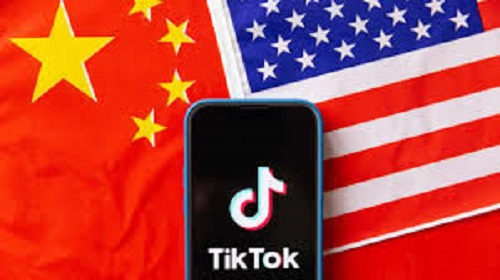
Proposed ban on Chinese owners of TikTok in the U
The proposed ban on Chinese owners of TikTok in the United States raises significant questions about the intersection of technology, national security, and international relations. The US government’s concerns about data privacy and potential foreign influence through apps like TikTok prompt a broader conversation about the complexities of global technology markets.
While the US considers banning Chinese-owned apps like TikTok, major American platforms such as Google, Facebook, Youtube , Instagram, WhatsApp and X (Twitter) are already banned in China, highlighting the asymmetry in international technology policies and reflecting broader geopolitical tensions.
The impact of a potential TikTok ban on US commerce and youth culture would be profound. TikTok has become immensely popular, particularly among young people, fostering creativity and community. A ban could disrupt this vibrant ecosystem, affecting content creators and millions of users who rely on the platform for entertainment and self-expression.
Furthermore, a TikTok ban may have implications for US elections and political discourse, given the platform’s role in shaping public opinion. It could influence voter engagement and outreach strategies during election cycles.
Biden’s Position:
Joe Biden has emphasized the importance of data privacy and national security, highlighting the need to safeguard American interests and protect sensitive user data from potential foreign influence. He supports addressing these concerns through diplomatic channels and engaging with international partners to establish clear guidelines for technology governance.
Trump’s Position:
President Trump has been vocal about the national security risks posed by Chinese-owned apps, including TikTok, and his administration took unilateral steps to ban or restrict TikTok’s operations in the United States. Trump’s approach prioritized executive orders and regulatory measures to address perceived threats without extensive consultation with international partners, focusing on defending data privacy and national security.
In the context of his rhetoric towards the youth, President Trump may portray Joe Biden as responsible for advocating the ban on TikTok, despite Trump’s own administration taking steps towards that direction during his presidency. This messaging aims to frame Biden as complicit in or supportive of policies limiting access to popular platforms like TikTok, contrasting Trump’s stance as a defender of data privacy and national security.
Overall, while both candidates share concerns about Chinese-owned apps’ security implications, Biden advocates for a more diplomatic and multilateral approach, engaging with international partners to address these issues, whereas Trump’s approach favored unilateral actions and executive orders to mitigate perceived threats. The differing strategies and emphasis reflect broader contrasts in their approaches to technology governance and international relations.
The recent bill signed by President Biden, mandating Chinese owners of TikTok to sell the platform to a non-Chinese entity or face a ban, reflects heightened concerns over national security and data privacy. This legislation underscores the complex interplay between technology governance, international trade, and geopolitical tensions.
The insistence on divesting TikTok from Chinese ownership aims to mitigate perceived risks and safeguard user data. The proposed sale requirement signals a significant shift in US policy towards Chinese technology companies, reflecting efforts to balance economic interests with national security imperatives.
This development also impacts US-China relations, already strained due to various geopolitical factors. The TikTok sale mandate could further exacerbate tensions and complicate broader trade negotiations.
TikTok is already banned in major countries like India, reflecting global concerns about data security and geopolitical tensions. Similar actions and regulatory scrutiny have emerged in other nations, illustrating a trend towards stricter oversight of Chinese-owned technology platforms.
As discussions around TikTok’s ownership evolve, it is essential to consider broader ramifications for technology governance, international relations, and digital innovation. Balancing security concerns with principles of openness and fair competition will be key to navigating the complex landscape of global technology policy in the 21st century.
Best Regards,
Dr. (H) Avi Verma
Publisher, IndoUS Tribune